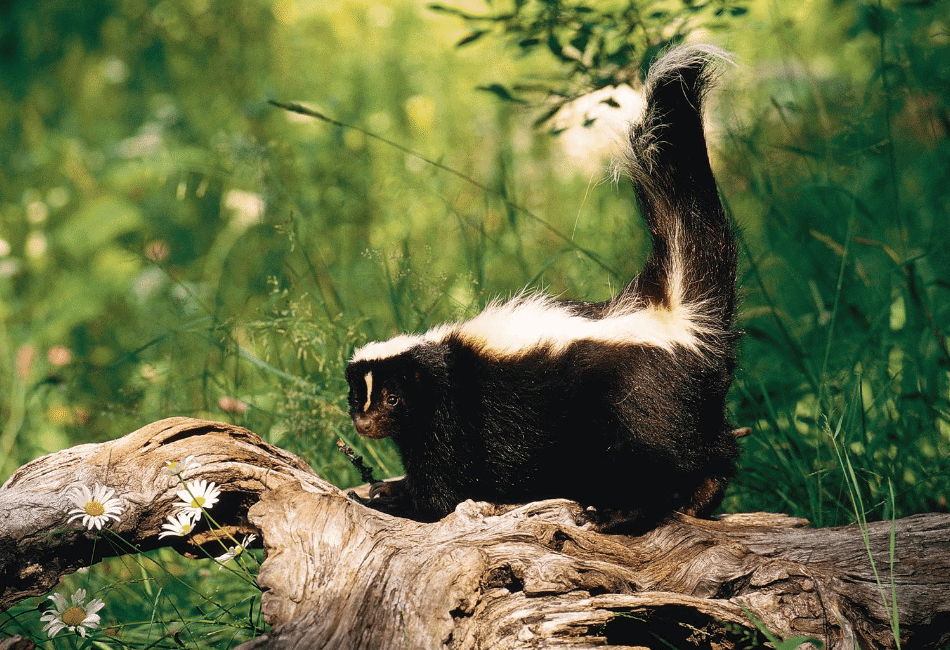Most people rarely encounter skunks since they are nocturnal and avoid humans. If skunks are spotted, they are usually seen scurrying around the yard or along the roadside. We would suspect that most people probably have not seen skunks climbing up trees or sitting on top of their fence.
So, do skunks climb? The answer is yes, but their climbing ability depends on the type of skunk.
The striped skunk is the most common North American skunk. It lives in all of the lower 48 states, northern Mexico, and a large portion of Canada. As Orkin explains, the striped skunk does not have excellent climbing skills. Its body is designed to specialize in digging for food such as grubs and other insects. It larger frame and long claws that are poor grippers contribute to its inability to climb.
The smaller built spotted skunk does have the ability to climb better than the striped skunk. It is able to climb easy targets such as trees or garbage cans for a quick meal.

A fence is a good deterrent of skunks. However, skunks have the ability to dig as we previously stated. If they want to get into your yard, they will have an easier job digging underneath the fence as opposed to climbing over it. You should extend the fence or create a barrier below the ground surface if you want to prevent skunks from digging their way into your yard.
Generally, most people do not have to worry about a skunk or two passing through the yard. Keep your distance and let it move along its way. However, if the skunk feels threatened, it may bite and, of course, spray. It will generally provide warning before spraying or biting. This may include hissing, stomping, and/or a raise of its tail.
On the chance that you or your pet are bitten or come in contact with a skunk’s feces, there is a risk of disease.
A 2015 study on rabies in the United States found that of 4,857 skunks tested for rabies, 1,365 (28.1%) were positive for the viral disease. A large portion of skunks with rabies were found in the central and eastern areas of the United States (view the map). Other disease that skunks can carry are leptospirosis, distemper, and even herpes b among others.
If you have skunks rotinuely visiting your yard or they are living on your property, you should seek solutions to remove them. Generally, a wildlife removal expert is the best course to quickly remedy the problem. A common reason that skunks are frequenting is often because they feel comfortable. In other words, they have access to food, water, and shelter. Things that may attract skunks and other animals are pet food (bird seed), compost piles with food scraps, leaky hoses, tall vegetation, and uncovered trash. Eliminate the comforts of your yard and the skunks will likely move on to greater luxuries.

